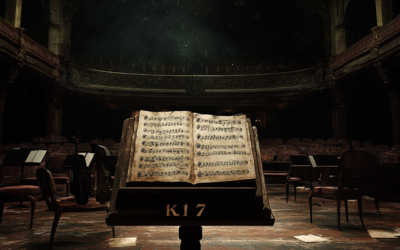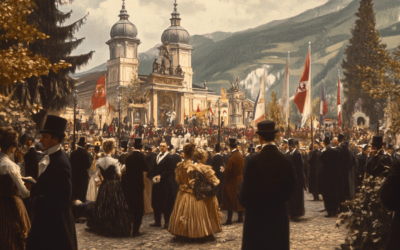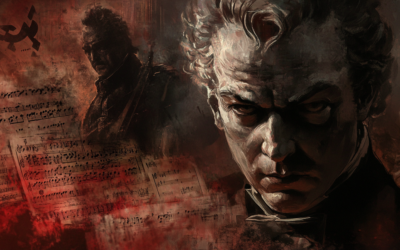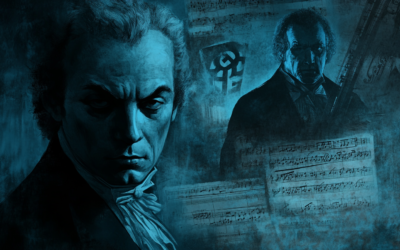Wolfgang Amadé Mozart
Unveiling the Truth: Mozart in Paris
Unveiling the often-overlooked reality of Mozart’s time in Paris reveals a story of manipulation and deception, far removed from the glorified narratives crafted by his father, Leopold.
Mozart in Italy: The Untold Story
Was Mozart truly a solitary genius, or was he merely the instrument of his father’s ambition? “Mozart in Italy” challenges the conventional narrative, revealing a complex dynamic between father and son that shaped the course of music history. Prepare to question everything you thought you knew.
“Leopold’s relentless self-promotion was not mere parental pride but a deliberate act to create a legacy for his son that would endure through the ages”
Mozart in Italy
The narrative of Wolfgang Amadeus Mozart’s journey through Europe has been long enshrined in popular culture as one of extraordinary triumphs, particularly in the courts of Paris and Versailles. However, a closer examination of the facts reveals a different story, one shaped by manipulation, exaggeration, and a relentless pursuit of status by his father, Leopold Mozart.
The Grand Illusion of Versailles
Leopold Mozart, ever the ambitious and controlling figure, orchestrated the family’s extensive tour of Europe with the calculated aim of showcasing his children’s talents. Paris, with its glittering court at Versailles, was a prime target. Arriving in November 1763, Leopold had already secured the help of Friedrich Melchior Grimm, a well-connected figure in Parisian society, to arrange performances for his children, Wolfgang and Nannerl. Yet, these performances were far from the grand concerts that one might imagine today. Instead, they were modest exhibitions, heavily promoted through Grimm’s Correspondance Littéraire, where hyperbolic terms like “genius” and “miracle” were liberally applied, often with little basis in reality.
The Myth of Royal Favour
Leopold’s correspondence paints a picture of unparalleled success at the French court, with tales of Wolfgang and Nannerl receiving the warmest of welcomes from King Louis XV and his family. The truth, however, is far less glamorous. While the Mozarts did perform at Versailles, there is scant evidence to suggest that the royal family paid them much attention. For instance, the infamous story of Wolfgang being served by Queen Maria Leszczyńska at the New Year’s Eve banquet is likely a fabrication. Such narratives were carefully crafted by Leopold to enhance his children’s reputations and secure their future prospects.
Deceptive Practices and False Accolades
One of the most striking examples of Leopold’s manipulations is the poem allegedly dedicated to his children by a French poet in 1764. In reality, this poem was a clumsy forgery. Leopold had taken a pre-existing work by the poet Barnabé Farmian Durosoy, removed the names of the original French musicians, and replaced them with his children’s names. This poem, presented as a genuine tribute to Wolfgang and Nannerl, was nothing more than a piece of Leopold’s marketing strategy, aimed at solidifying their status in the eyes of the European elite.
The Legacy of Deception
Leopold Mozart’s relentless self-promotion and fabrication of events were not mere parental pride; they were deliberate acts designed to create a legacy for his son that would endure through the ages. However, these embellishments have led to a distorted view of Mozart’s early career, overshadowing the less flattering aspects of his and his father’s personalities. The Mozarts’ time in Paris, often seen as a period of triumph, was in many ways a testament to Leopold’s skill in spinning reality to suit his ambitions.
You May Also Like
Constanze Mozart’s Enduring Love
Although some have doubted her devotion, Constanze’s own words and actions illustrate a widow deeply committed to preserving Mozart’s legacy. Diaries, personal correspondence, and eyewitness testimony all challenge the notion that she neglected his memory—while the circumstances around his burial grow ever more perplexing.
A Revealing New Interview on His Thematic Catalogue
We’re excited to present a brand-new interview that challenges many of the long-held assumptions about Mozart’s Thematic Catalogue (1784–1791). Conducted by Swedish journalist Henry Grynnsten, this conversation delves into groundbreaking forensic techniques—like advanced ink analysis and digital image processing—that may change the way we view Mozart’s late works.
The Rattling Symphony: A Critical Take on K. 17
Often attributed to Mozart, the K. 17 symphony is anything but refined. Lacking orchestration and filled with gaps, it raises more questions than answers about its true authorship.
The Hidden Origins of the Salzburg Festival: A Nationalist Dream
The Salzburg Festival, far from being a mere celebration of Mozart’s genius, was born out of nationalist ambitions during a turbulent period in Austro-German history. Conceived by figures like Max Reinhardt, Heinrich Damisch, and Friedrich Gehmacher, the festival was deeply rooted in ultranationalistic ideals, transforming Mozart’s legacy into a tool for cultural dominance. The truth behind its founding has long been obscured, but the primary sources tell a different, darker story.
Mozart, Wagner, and the Nazi Myth
The Führer’s admiration for Wagner’s racially charged ideology not only influenced the policies of the Nazi regime but also reshaped the legacy of Mozart. Under National Socialism, Mozart was not celebrated as a universal genius but as a symbol of German purity and superiority. His music, stripped of its international influence, was rebranded as an expression of Aryan identity, intended to unify and inspire the German people.
Mozart, the Anschluss, and Nazi Propaganda
Following the 1938 Anschluss, the Nazi regime rebranded Mozart as the quintessential German composer, using his image to promote unity between Austria and Germany. The Salzburg Festival became a platform for Nazi propaganda, distorting Mozart’s legacy to fit their nationalistic and racial agenda.







